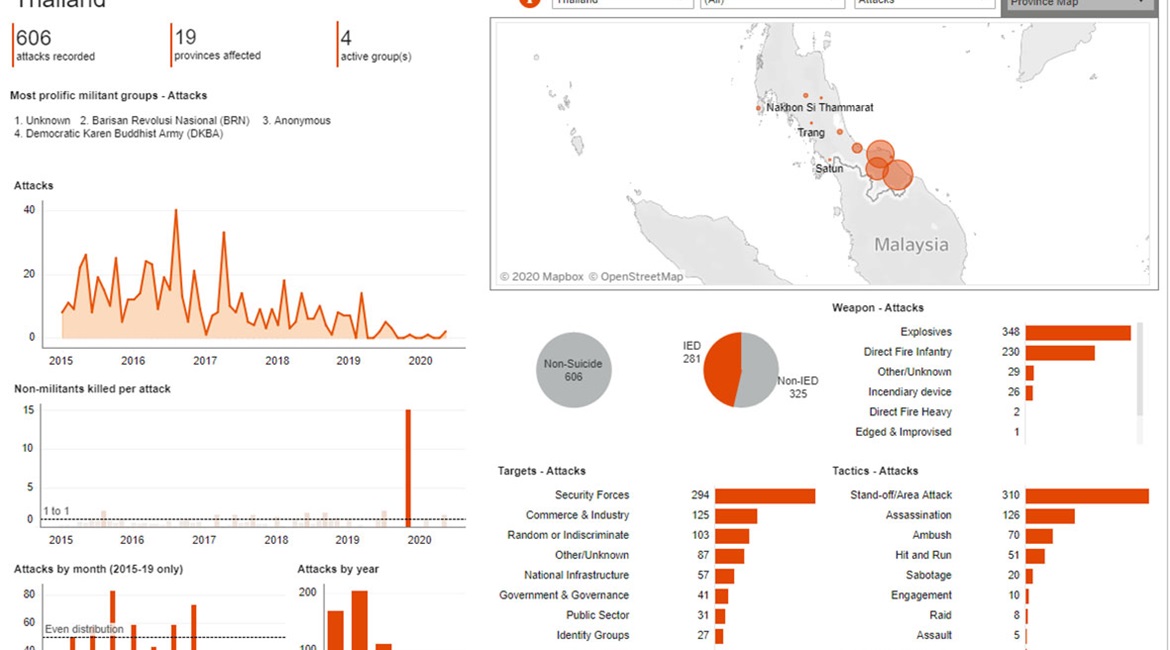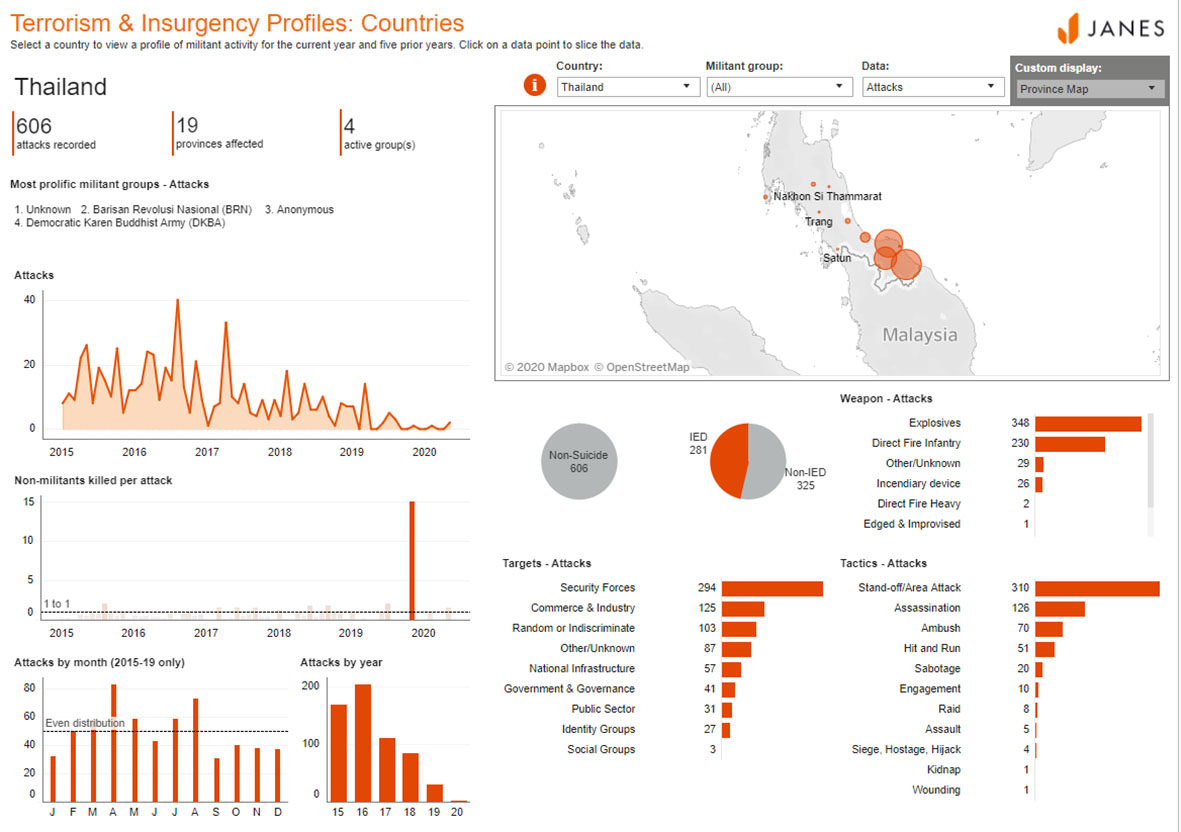
After 16 years of relentless violence, the onset of the Covid-19 pandemic has had an unprecedented impact on southern Thailand’s Malay-Muslim separatist insurgency, opening the way for a unilateral militant ceasefire and two months of almost unbroken peace.
As the threat of the virus recedes and the Muslim community emerges from the fasting month of Ramadan – a period which in the past has often resulted in a spike in violence – the Thai state and the insurgent Barisan Revolusi Nasional (BRN), or National Revolutionary Front, are now assessing whether to attempt to build on the lull with more confidence-building measures and possibly a formal ceasefire or to revert to a new round of hostilities.
Pandemic response
The spread of the Covid-19 virus first affected the southern border provinces of Thailand in March, driven largely by the return of Muslim devotees from religious gatherings in Malaysia and Indonesia. Community transmission in these areas rendered the border region one of three national clusters of infection along with the Bangkok metropolitan area and the tourist centre of Phuket province. With only slightly over 3,000 recorded cases nationwide and just 57 Covid-related deaths by the end of May, Thailand has seemingly escaped any severe medical emergency.
On 3 April, the BRN’s Central Secretariat announced in a one-page official statement a unilateral ceasefire predicated on the need to support efforts to respond to the crisis and mitigate the threat to the people of the Patani region. The measure was the first time the group, which has planned and dominated the separatist insurgency since the turn of the century, had publicly declared a ceasefire.

Looking to read the full article?
Gain unlimited access to Janes news and more...


